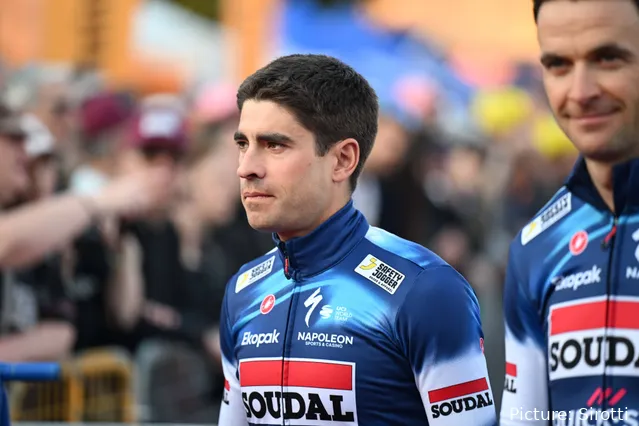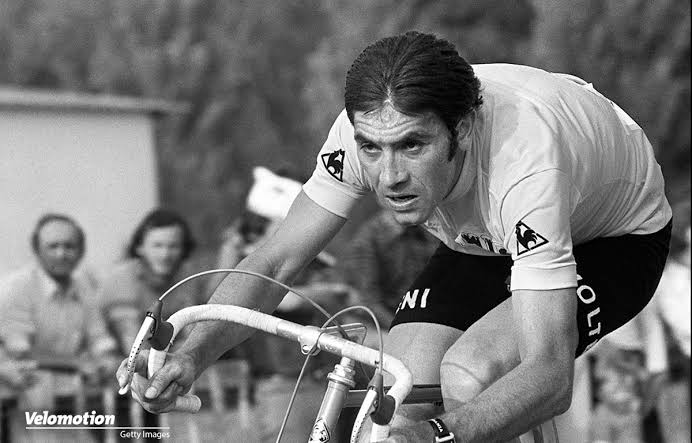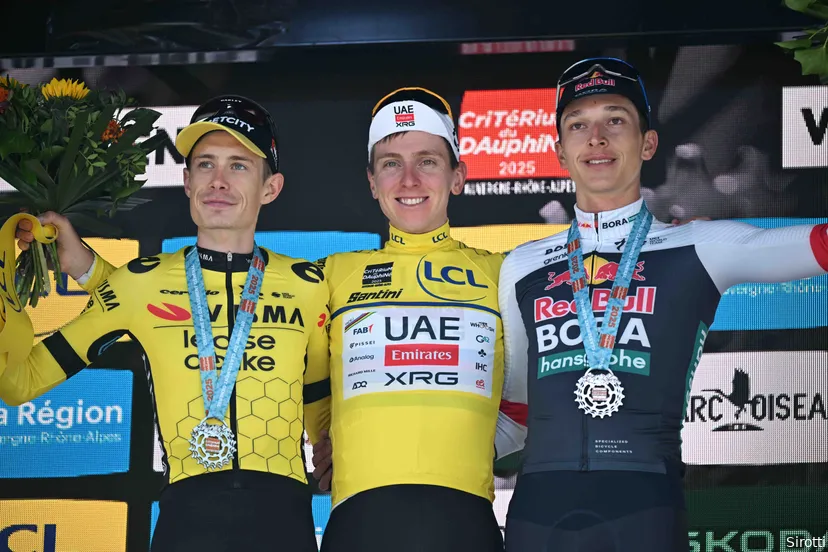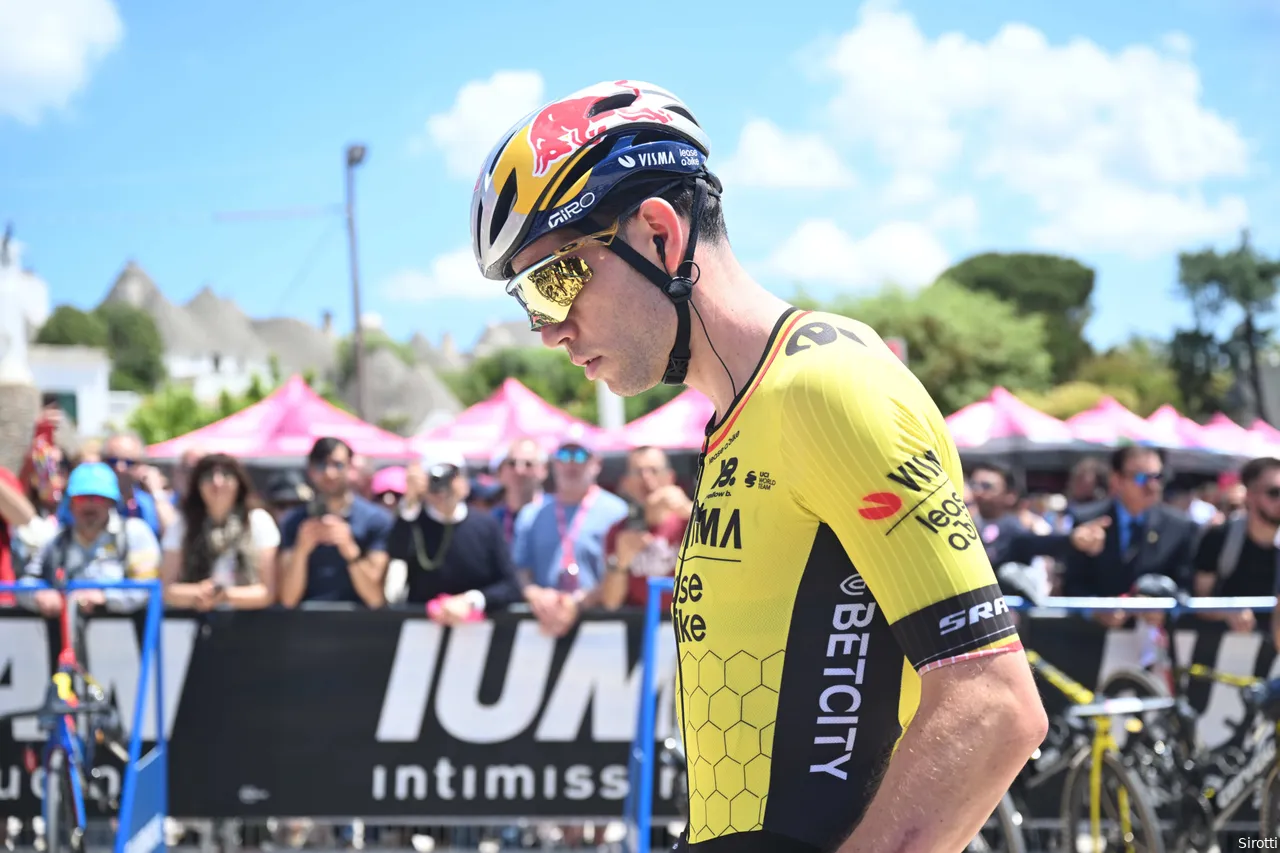**”The Goal is for Him to Be at Vuelta” — Quick-Step DS Excited About Mikel Landa’s Comeback from Injury**
In the high-octane world of professional cycling, few stories evoke as much hope, resilience, and anticipation as that of Mikel Landa’s recent comeback. For Quick-Step Alpha Vinyl Team’s Directeur Sportif (DS), the sentiment is clear and compelling: the ultimate goal is for Mikel Landa to be present at the Vuelta a España, one of cycling’s grand tours, after a challenging period marked by injury and recovery. This article delves into the significance of Landa’s return, the strategic importance for Quick-Step, and the broader implications of his comeback in the context of professional cycling.
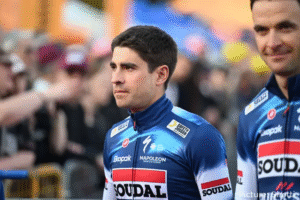
The Context: Mikel Landa’s Career and Recent Challenges
Mikel Landa, born in 1989 in Spain, has long been regarded as one of the most talented and versatile climbers in professional cycling. Throughout his career, he has been known for his incredible endurance, tactical intelligence, and formidable climbing prowess, making him a formidable contender in Grand Tours such as the Tour de France, Giro d’Italia, and Vuelta a España.
However, like many athletes, Landa’s journey has been punctuated by injuries that temporarily derailed his progress. In 2022, he suffered a significant injury that sidelined him for several months. The injury not only affected his physical capacity but also threatened his mental resilience. Yet, true to his fighting spirit, Landa focused on rehabilitation and recovery, determined to return to the peloton stronger than ever.
The Significance of the Vuelta a España
The Vuelta a España, held annually in late summer, is one of cycling’s three Grand Tours, alongside the Tour de France and Giro d’Italia. It is renowned for its challenging climbs, unpredictable weather, and passionate Spanish crowds. For Spanish riders like Landa, the Vuelta holds a special cultural and emotional significance; it is a home race that symbolizes national pride and personal achievement.
For many riders, including Landa, the Vuelta is an opportunity to shine on home soil, to demonstrate their resilience, and to contend for victory in front of their compatriots. For Quick-Step, a team known for its strategic prowess and versatility, having a rider of Landa’s caliber in peak condition for the Vuelta can be a game-changer.
8Quick-Step Alpha Vinyl Team’s Strategic Perspective
Quick-Step Alpha Vinyl Team, one of the most successful and tactically astute teams in professional cycling, has always been adept at nurturing talent and executing race strategies that maximize their riders’ strengths. The team’s Directeur Sportif (DS), whose role encompasses race planning, tactical decisions, and rider development, is particularly excited about Landa’s potential return.
The DS emphasizes that Landa’s qualities—his climbing ability, race intelligence, and experience—are invaluable assets for their Vuelta ambitions. The goal isn’t merely to participate; it’s to contend seriously for the overall classification and stage wins. Landa’s presence in the squad can bolster their strategic options, whether it’s supporting a team leader, launching a surprise attack, or anchoring a strong GC (General Classification) challenge.
I88 The Road to Recovery: Training and Preparation
Landa’s journey back to peak fitness has involved meticulous planning, rigorous training, and a focus on injury rehabilitation. The team’s medical staff, physiotherapists, and trainers have worked closely with him to ensure he rebuilds strength, endurance, and confidence.
The DS notes that Landa’s mental resilience is as critical as his physical recovery. Overcoming setbacks, maintaining motivation, and adjusting race strategies to account for his current form are all integral parts of the process. The team has carefully mapped out a race schedule leading up to the Vuelta, allowing Landa to gradually increase intensity and volume, ensuring he peaks at the right moment.
The Tactical Role of Mikel Landa in the Vuelta
Landa’s role in the Vuelta can be multifaceted. Depending on his form and the team’s overall strategy, he could serve as a team leader competing for the GC, a super-domestique supporting a designated leader, or even as a stage hunter targeting specific stages that suit his skills.
The DS envisions a flexible approach, leveraging Landa’s climbing prowess on the mountain stages and his tactical acuity in breakaways. His experience in Grand Tours means he can adapt quickly to race situations, respond to attacks, and work seamlessly with teammates.
Furthermore, Landa’s presence might influence the race dynamics, forcing rivals to reconsider their strategies. His reputation as a resilient and aggressive rider can serve as a psychological advantage for Quick-Step.
Broader Implications for Quick-Step and Cycling Fans
Landa’s comeback isn’t just about one rider; it symbolizes the resilience and enduring spirit of professional cycling. Fans worldwide, especially those in Spain, are eager to see their compatriot back in action, competing at the highest level.
For Quick-Step, having Landa at the Vuelta would bolster their team’s credibility and competitive edge. It demonstrates their commitment to developing and supporting their riders through adversity, which is a hallmark of sustained success in the sport.
The anticipation also fuels excitement among cycling enthusiasts, who look forward to witnessing whether Landa can deliver a memorable performance, challenge the favorites, and perhaps even secure a podium finish.
The Challenges Ahead
While the enthusiasm is high, the road to the Vuelta is fraught with challenges. Recovery isn’t linear; setbacks can occur, and race conditions are unpredictable. Landa will need to navigate the physical demands of the race, manage fatigue, and stay motivated amidst fierce competition.
Moreover, the team must balance their strategic objectives with the individual aspirations of their riders. Communication, adaptability, and tactical discipline will be crucial for their success.
The Future Outlook
If Landa’s comeback continues on track, the Vuelta could mark a pivotal moment in his career—a testament to perseverance and determination. A successful campaign could not only elevate his status within the peloton but also inspire countless fans and aspiring cyclists.
For Quick-Step, integrating Landa into their Vuelta plans exemplifies their commitment to strategic excellence and rider development. It underscores their belief in resilience, teamwork, and the relentless pursuit of victory.
The statement from Quick-Step DS, “The goal is for him to be at Vuelta,” encapsulates hope, strategic foresight, and a deep understanding of the athlete’s potential. Mikel Landa’s journey from injury to race readiness embodies the very spirit of professional cycling—a relentless pursuit of excellence against all odds.
As the Vuelta approaches, all eyes will be on Landa to see if he can realize this goal, challenge the race favorites, and perhaps etch another memorable chapter in his illustrious career. Regardless of the outcome, his comeback story remains a powerful reminder of resilience, determination, and the unwavering spirit of a cyclist committed to reaching the summit once again.
